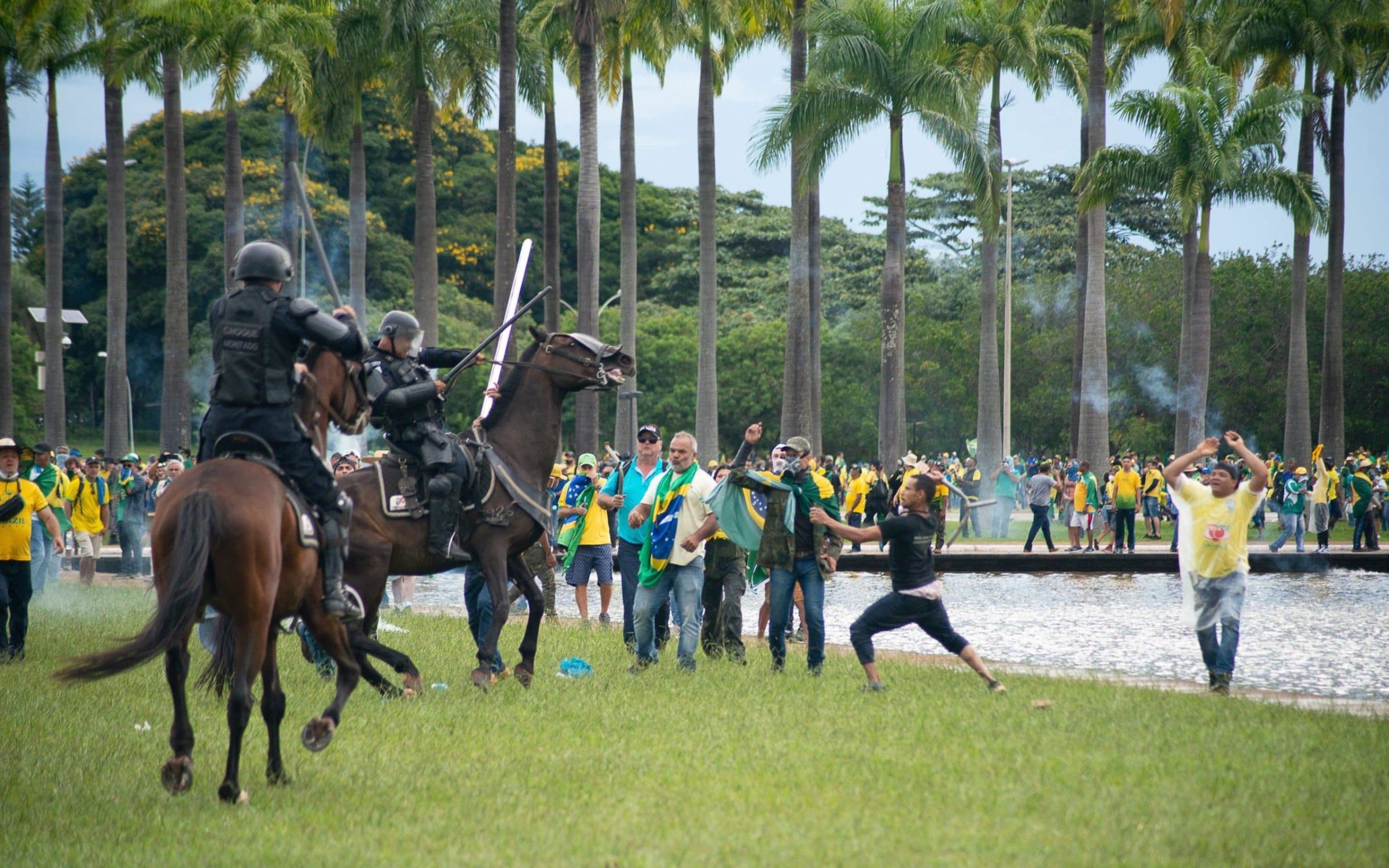Brazilian riot police have moved into a camp outside the country’s military headquarters in Brasilia to remove far-right demonstrators, thousands of whom were responsible for storming government buildings in Brasília last night, in scenes eerily reminiscent of the 2021 assault on the US Capitol, writes Caitlin Allen.
Those outside the military base are supporters of former president Jair Bolsonaro, who was rushed to hospital in Florida this afternoon after experiencing “severe abdominal pains.” Bolsonaro’s fanatical supporters are demanding military intervention to overturn what they claim – with no evidence – to be a rigged election in Brazil. Some have been camping outside army buildings around the country ever since socialist president, Luiz Inácio Lula, narrowly won the election – with 51 per cent of the vote – back in October.
Lula has vowed to punish those financing the “acts of vandals and fascists” committed last night with “all the strength of law.”
Security forces have already detained 1,200 rioters who ransacked the Congress building, the presidential palace, and Supreme Court, trashing offices, smashing windows and burning furniture in an apparent attempt to overthrow Lula after just one week in office.
Yet, despite the 77-year-old veteran left-winger vowing to hold all those responsible for the violence to account, urgent questions remain about who exactly is complicit.
First, there is the question of who funded the several hundred buses that brought Bolsonaro’s supporters to Brasilia from across the country. It’s thought that a number of large land-owners and business groups helped pay for them.
What’s more, according to Alexandre de Moraes, a judge in Brazil’s Supreme Court, the security breach we witnessed last night “could only have happened with the acquiescence, or even direct involvement, of public security and intelligence authorities.”
Ibaneis Rocha, governor of Brasilia and a Bolsonaro ally, has been removed for 90 days over purported security failings that contributed to the chaos. And while police officers present did eventually restore order last night by using tear gas to hold back rioters, some officers were spotted nonchalantly taking selfies with those storming the buildings.
Not only does pro-gun right-winger Bolsonaro enjoy high levels of support from inside the police force, but crucially, he has also cultivated close ties to Brazil’s military.
As Rafael Irois writes in Reaction today, during Bolsonaro’s stint in power, conservative generals he was friendly with were frequently rewarded with key positions inside his administration – from chief of state to minister of defence and even minister of health. Some military figures have explicitly voiced support for a number of smaller-scale pro-coup demonstrations taking place in Brazil in the build-up to yesterday’s dramatic events.
Parallels with the US are unmistakeable. Bolsonaro himself, who is currently residing in Florida but has never formally conceded power, has rejected claims that he incited the mob nor has he explicitly defended it.
And yet, much like Trump, he has fuelled the unrest by sowing unsubstantiated claims about rigged voting systems and a “stolen” election. More generally, during his time as leader, he encouraged distrust in political institutions, advocating the closure of Congress and attacking the Supreme Court.
Even so, despite the obvious parallels, there are big differences. Perhaps most saliently, the fact that the aim for many of the rioters in Brazil, unlike those in the US, is to launch a military coup. And the extent to which Bolsonaro still curries favour with many of those responsible for upholding law and order could mean the scenes unfolding in Brasilia pose an even greater threat to democracy.





